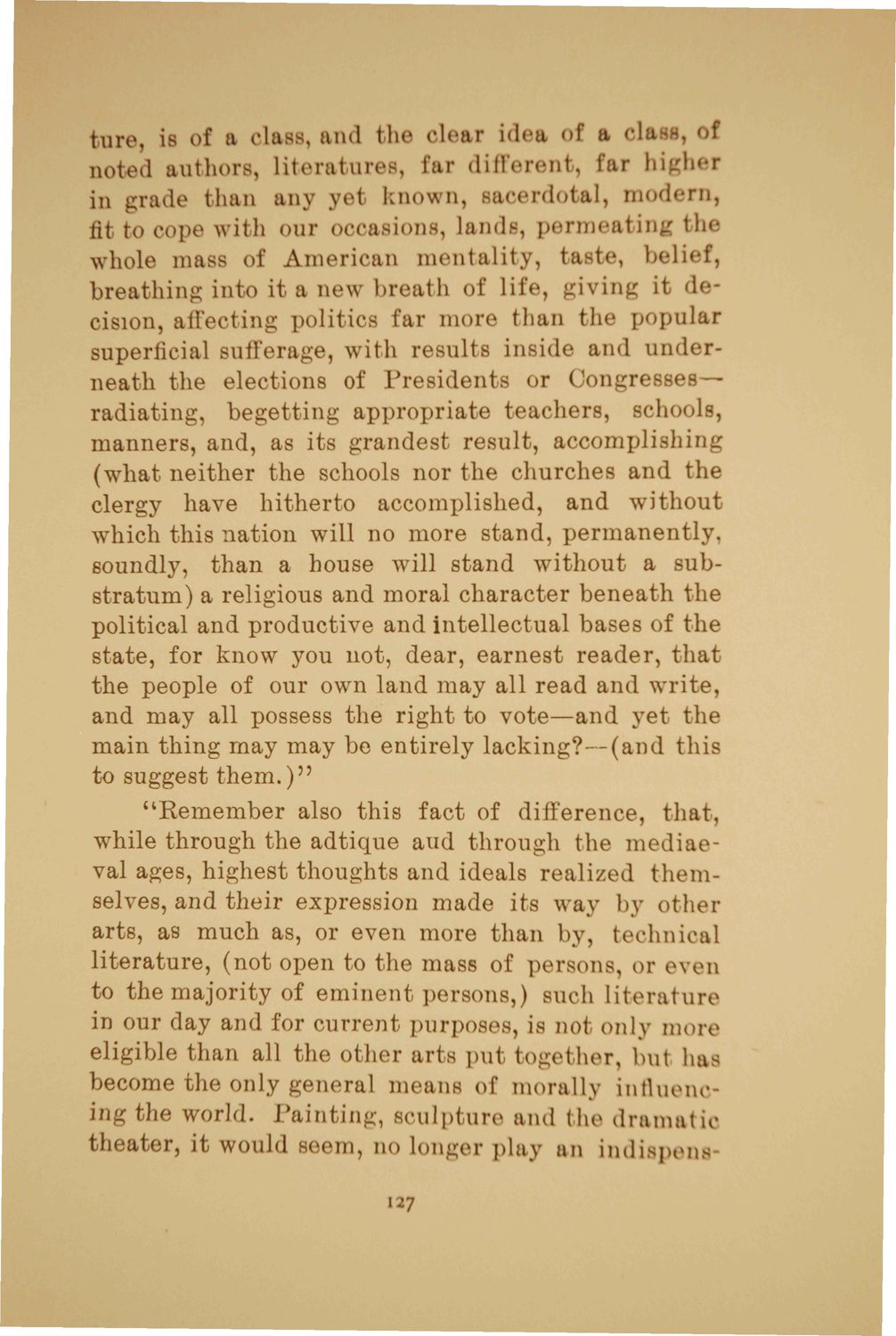| |
| |
Caption: Magazine - English Club The Illinois (1907)
This is a reduced-resolution page image for fast online browsing.

EXTRACTED TEXT FROM PAGE:
tnre, is of a class, and the clear idea of a elans, of not -1 authors, literatun-s, far different, far higher in grade than any yet known, sacerdotal, mod rn, tit to cope with our occasions, lands, permeating th< whole mass of American mentality, taste, beli f, breathing into it a new breath of life, giving it decision, affecting politics far more than the popular superficial suffer age, with results inside and underneath the elections of Presidents or Oongre — radiating, begetting appropriate teachers, schools, manners, and, as its grandest result, accomplishing (what neither the schools nor the churches and the clergy have hitherto accomplished, and without which this nation will no more stand, permanently, soundly, than a house will stand without a substratum) a religious and moral character beneath the political and productive and intellectual bases of the state, for know you not, dear, earnest reader, that the people of our own land may all read and write, and may all possess the right to vote—and yet the main thing may may be entirely lacking?--(and this to suggest t h e m . ) " "Remember also this fact of difference, that, while through the adtique and through the mediaeval ages, highest thoughts and ideals realized themselves, and their expression made its way by other arts, as much as, or even more than by, technh il literature, (not open to the mass of persons, or even to the majority of eminent persons,) such literature in our day and for current purposes, is not only more eligible than all the other arts put together, but has become the only general means of morally influencing the world. Painting, sculpture and the dramatic theater, it would seem, no longer play an indispens 127
| |